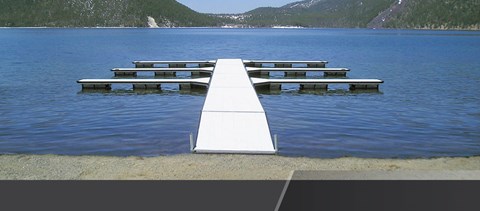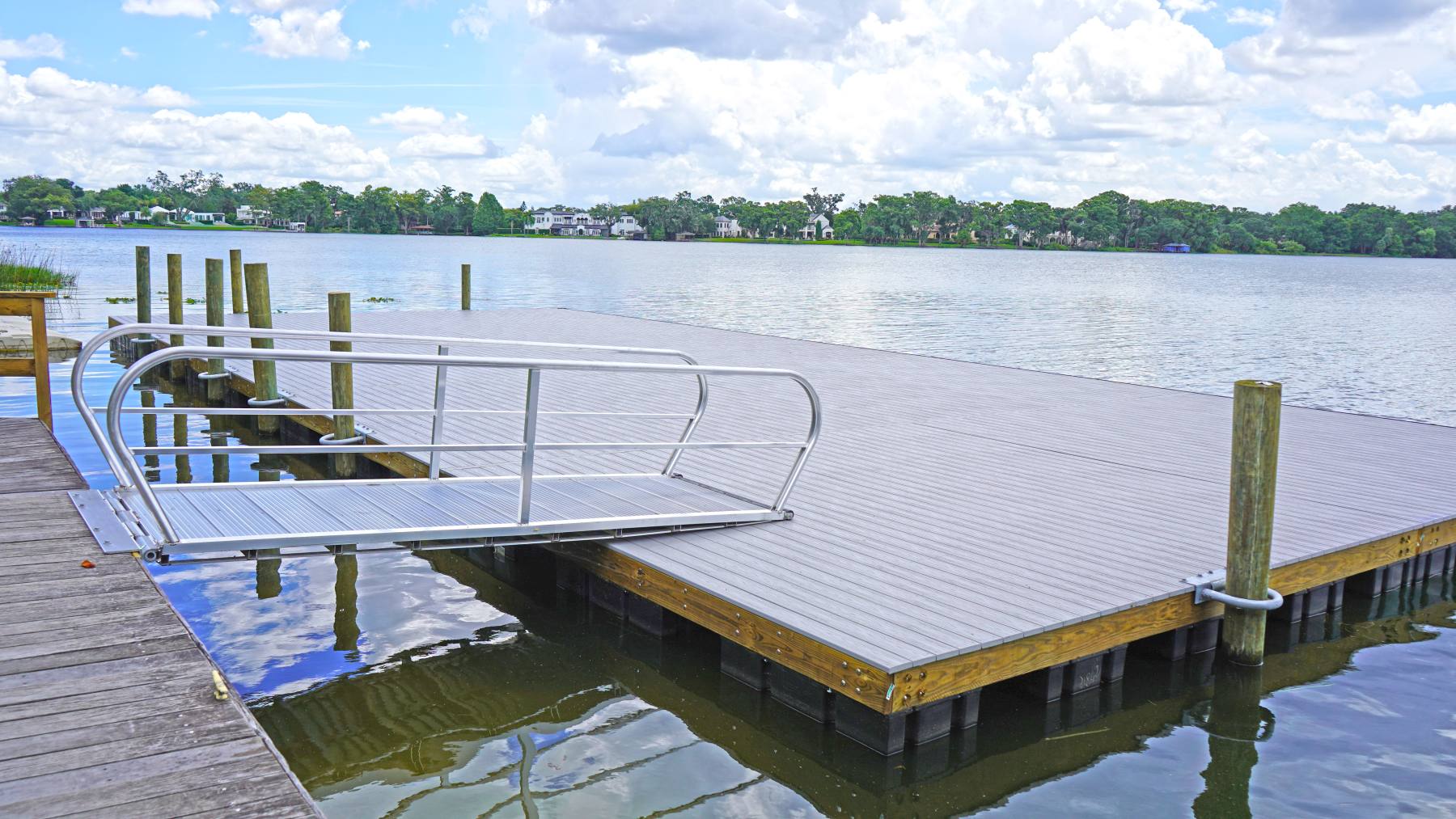The Ultimate Overview to Selecting the very best Floating Docks
Selecting the perfect floating dock calls for an extensive understanding of various elements that affect both performance and durability. Factors such as dock types, materials, and important functions substantially affect your decision-making process.
Understanding Floating Dock Types
When selecting a drifting dock, it is essential to recognize the different types available, as each offers distinctive objectives and applications. Floating docks primarily come under 3 categories: modular, stationary, and pontoon docks.
Modular docks are made up of private sections that can be conveniently put together or reconfigured, making them suitable for changing water degrees and varied uses, such as entertainment activities or industrial procedures. Their flexibility permits customization based on particular demands.

Pontoon docks are identified by their resilient framework, usually composed of several pontoons that give stability and support. They are especially fit for larger vessels and are frequently utilized in marinas or for waterside properties. Recognizing these kinds aids in picking one of the most proper floating dock to fulfill specific needs, making certain optimal functionality and safety.
Key Products for Resilience
Picking the best products for floating docks significantly effects their toughness and long life. The most common materials include wood, plastic, steel, and composite materials, each offering distinctive advantages and constraints.
Timber, commonly favored for its aesthetic appeal, needs normal maintenance to endure dampness and degeneration. Pressure-treated lumber can enhance resistance to rot, yet it might still be at risk to parasites and weathering.

Plastic docks, made of high-density polyethylene (HDPE), are resistant to corrosion, UV radiation, and effect, making them a preferred choice for coastal environments. Their lightweight nature additionally promotes very easy installation and moving.
Metal docks, typically constructed from aluminum or galvanized steel, give extraordinary toughness and toughness. They are resistant to deterioration, particularly when treated, yet may call for added insulation to stop heat buildup in hot climates.
Composite materials, combining timber fibers and plastics, supply the advantages of both timber and plastic, standing up to moisture and fading while calling for marginal upkeep. - floating docks
Ultimately, the option of materials need to straighten with ecological problems, planned use, and upkeep choices to guarantee the floating dock continues to be practical and aesthetically pleasing in time.
Necessary Functions to Consider
While the choice of materials is critical, considering essential attributes for floating docks is equally important to make certain optimal efficiency and customer contentment. One vital function to evaluate is the dock's buoyancy capability, which determines just how much weight it can sustain without submerging. floating dock company. This is vital for suiting boats, individual watercraft, and even entertainment tasks
Additionally, mobility is a significant factor to consider. Relying on your needs, you may want a dock that is very easy to transport and disassemble, particularly if you prepare to relocate it seasonally. Stability is another vital function; a well-designed floating dock should minimize activity triggered by wind and water currents, giving a safe system for customers.
Safety functions, such as non-slip surface like this areas and rounded sides, are also critical to stop crashes, particularly in wet problems. site link Consider the accessibility of accessories, such as cleats, ladders, and bumpers, which can boost the capability of your dock.
Setup and Maintenance Tips
Setting up and keeping a drifting dock calls for cautious preparation and focus to detail to guarantee its durability and optimal performance. Begin by selecting a proper place that decreases direct exposure to solid currents and waves, which can trigger damage. Guarantee that the water deepness is sufficient for the dock's elevation which it is anchored firmly to avoid movement.
Throughout setup, follow the supplier's guidelines carefully, as incorrect assembly can jeopardize security. Usage high-grade materials resistant to rust, such as light weight aluminum or dealt with wood, to boost sturdiness. Frequently evaluate all components, consisting of floats, adapters, and anchoring systems, for indicators of damage or wear.
If your dock utilizes flotation protection devices, ensure they stay cost-free and intact from leaks. By adhering to these installment and upkeep pointers, you can take pleasure in a useful and trusted floating dock for years to come.
Budgeting for Your Dock
Budgeting for your dock is an essential action that can dramatically influence your general contentment and investment in a beachfront home. Establishing a clear budget plan assists you browse the numerous options available and guarantees you make informed choices that straighten with your monetary abilities.
Begin by determining the size and design of the dock you need, as these aspects will significantly influence the price. Floating docks can vary considerably in rate, relying on materials, buoyancy, and features like accessories and ramps. Research study different producers and suppliers to compare prices and recognize the check these guys out marketplace value.
Along with first costs, consider continuous costs such as maintenance, insurance policy, and prospective repair services. Designate funds for these persisting prices to prevent shocks down the line. It's likewise prudent to spending plan for any kind of necessary permits or assessments, which may be required by regional regulations.
Finally, bear in mind the potential roi. A tactical dock can improve your home's worth and charm, providing a favorable economic impact in the long term. By budgeting effectively, you can guarantee that your dock meets your needs without jeopardizing your financial security.
Final Thought
In verdict, selecting the ideal floating dock demands a complete assessment of numerous aspects, including dock kinds, materials, crucial attributes, and setup processes. Cautious factor to consider of monetary constraints will certainly further guarantee a sound investment.

While the choice of products is important, thinking about crucial features for floating docks is similarly crucial to ensure optimum performance and user complete satisfaction.Establishing up and maintaining a floating dock calls for mindful planning and focus to information to ensure its long life and optimum performance. Floating docks can differ dramatically in rate, depending on products, buoyancy, and functions like accessories and ramps.In conclusion, choosing the excellent floating dock requires a complete analysis of numerous variables, consisting of dock types, products, crucial features, and installation processes.